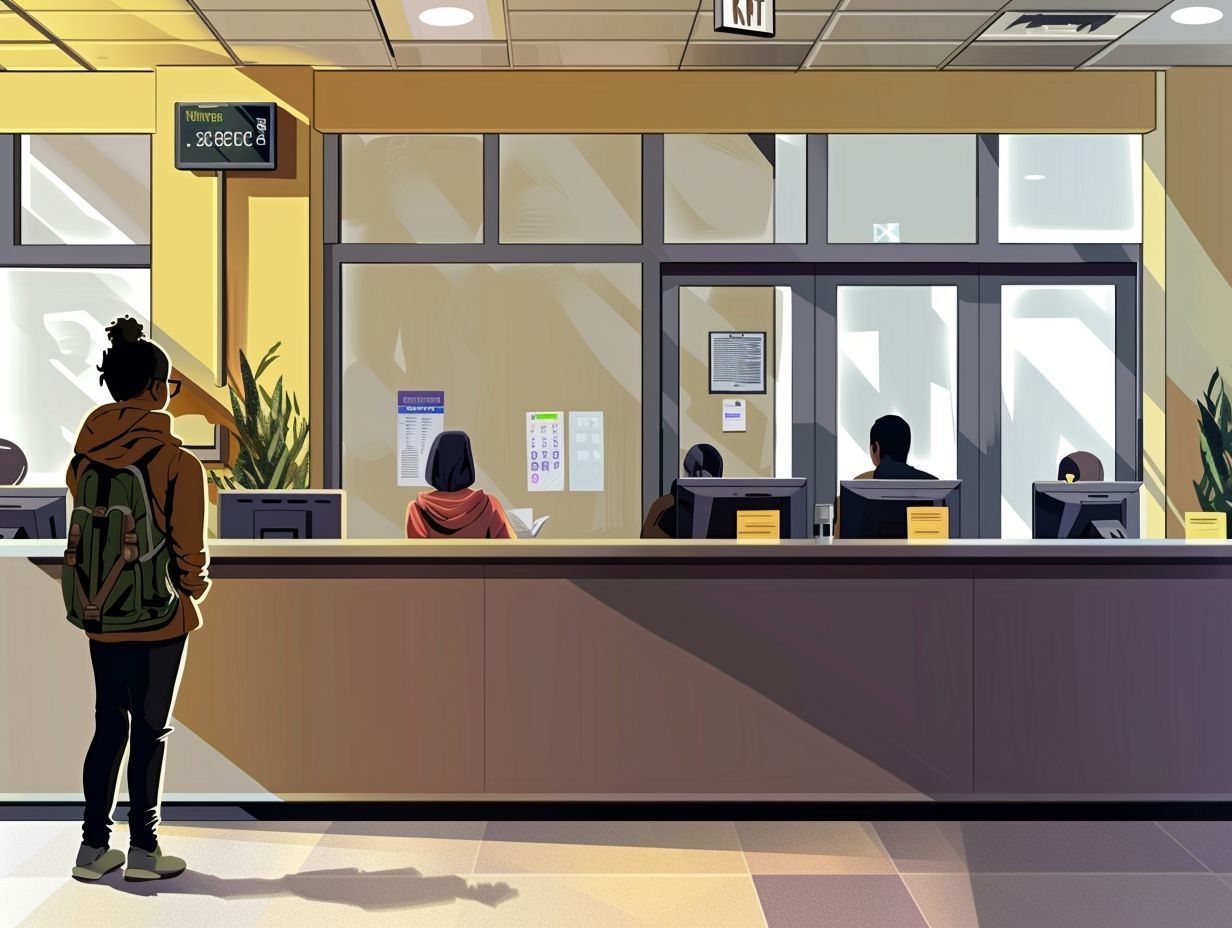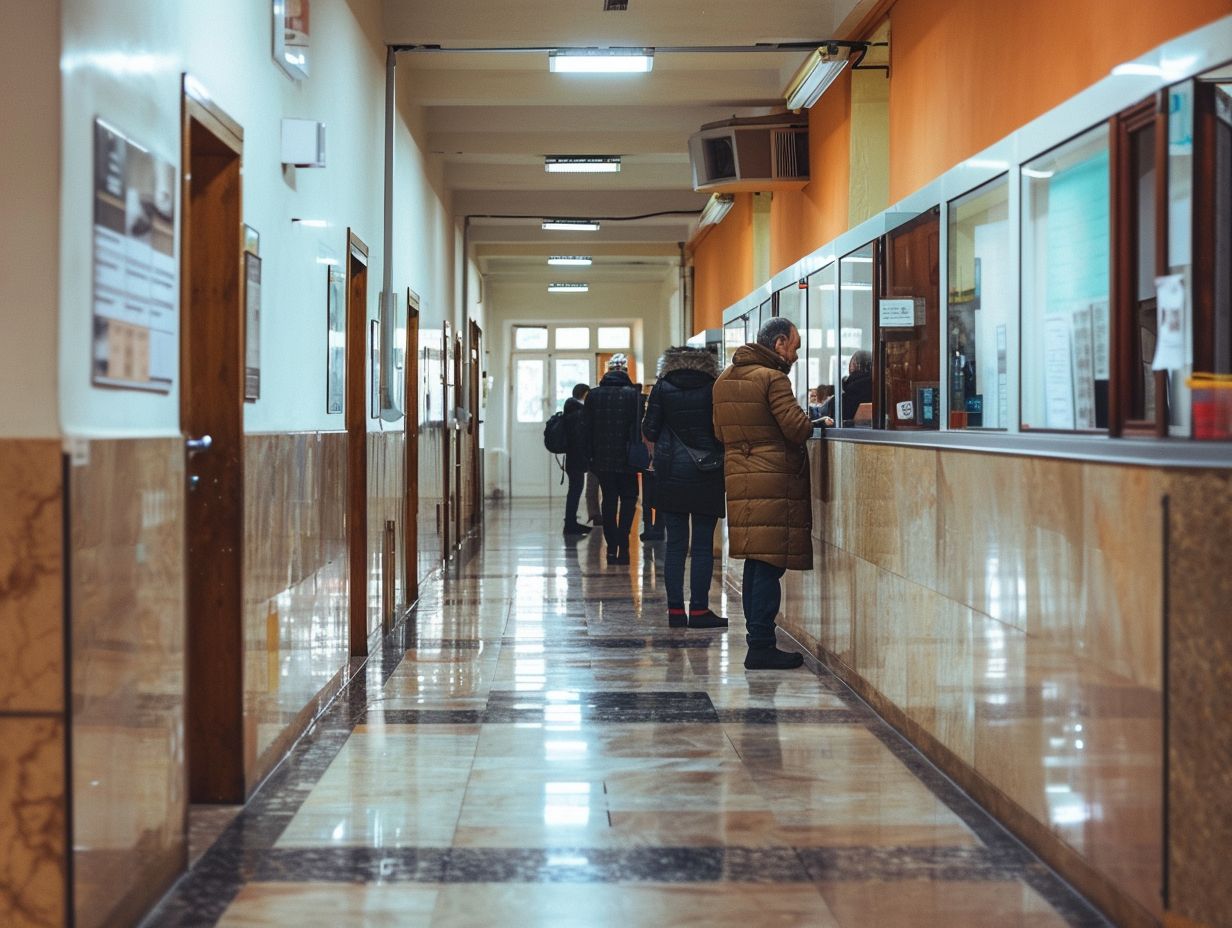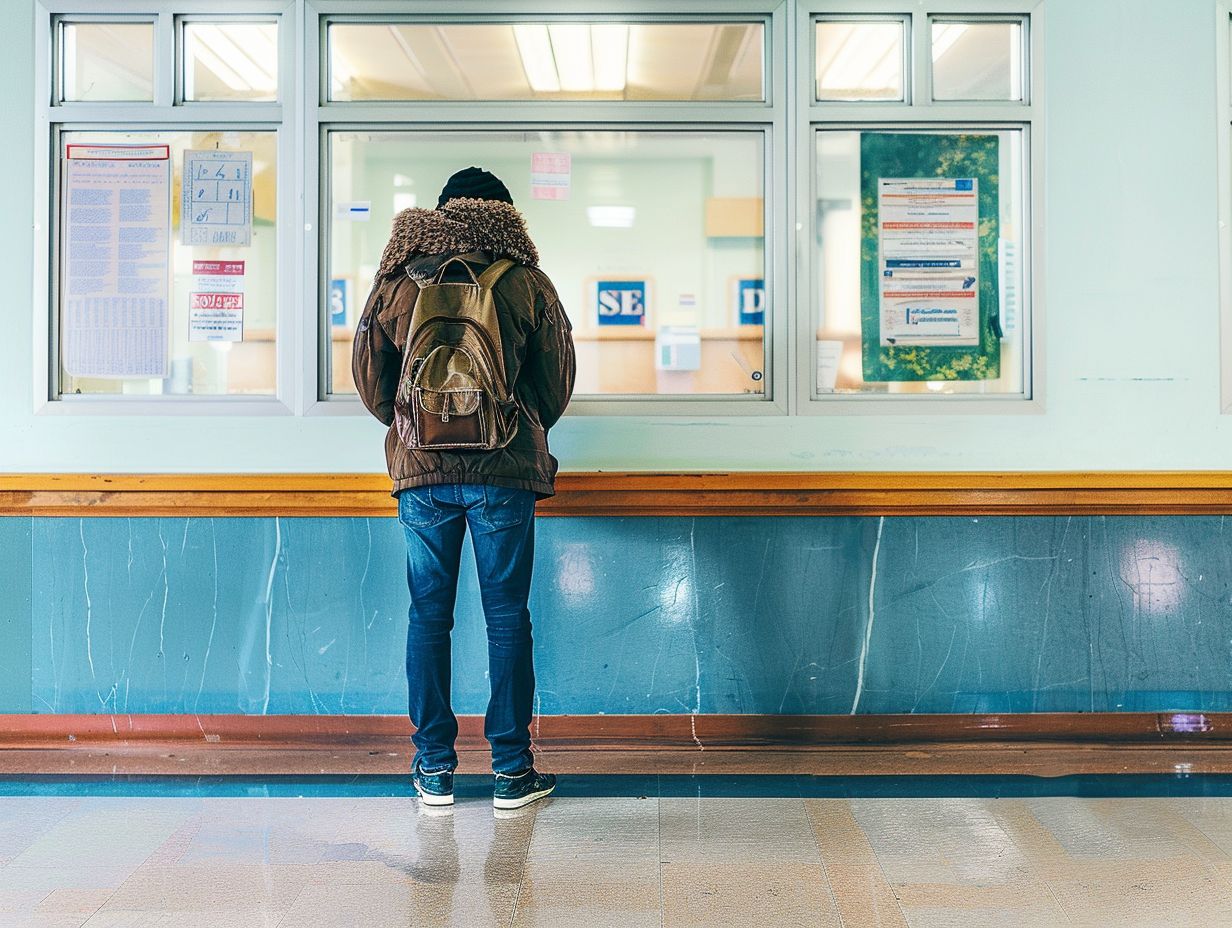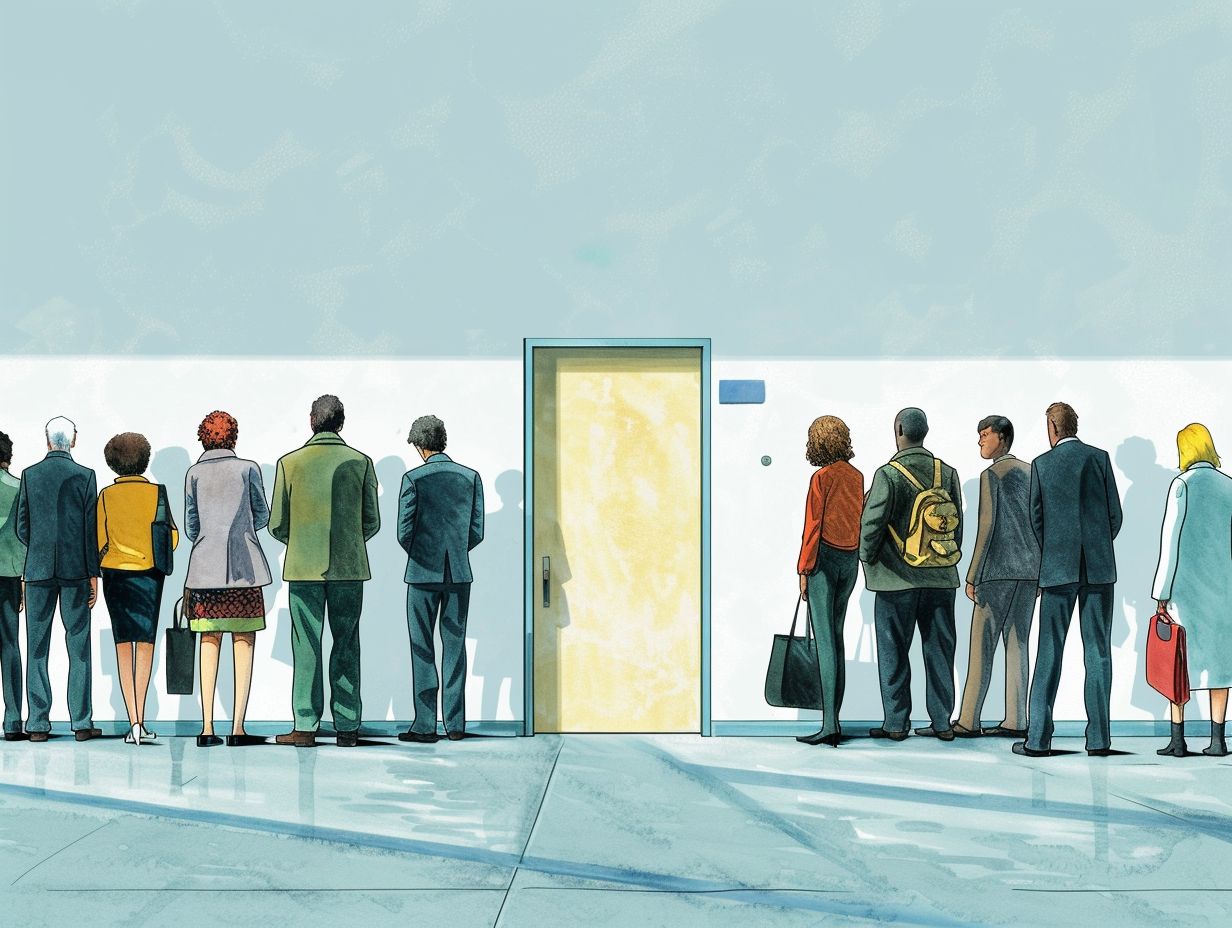Are you trying to navigate the tricky waters of the United States immigration application process? Let’s break it down for you. We’ll give you an overview of the process and timeline, clue you in on what usually causes delays, and talk about how these delays can mess things up for you.
Plus, we’ll walk you through what to do when faced with delays and why it’s crucial to get legal help. Come check out how you can tackle and beat those pesky delays in the immigration application process with us.
The United States Immigration Application Process

When you apply for immigration to the United States, get ready for a thorough and multi-step process. You’ll need to submit different forms, meet specific requirements, go through background checks and biometrics, attend interviews at a consulate or embassy, and then wait for USCIS approval. Once approved, you’ll get your hands on a visa, green card, or even citizenship, changing your legal status within the United States.
Overview of the Process and Timeline
To manage your expectations and plan accordingly, you need to understand the United States Immigration application process and its timeline.
One of the essential steps in the immigration application process is filing various forms with the U.S. Citizenship and Immigration Services (USCIS), like the I-130 Petition for Alien Relative, the I-485 Application to Register Permanent Residence or Adjust Status, and the I-765 Application for Employment Authorization.
Once you’ve submitted these forms, you’ll usually go through background checks to make sure you’re admissible into the country. The processing times for these checks can vary based on your situation, but typically, it could take several months before you get a visa or other legal status.
Common Causes of Delays
Delays in your United States immigration application process can be caused by a mix of things. It could be procedural hiccups, changes in regulations, or just tons of applications piling up, causing visa backlogs and dragging out the processing times with USCIS.
Factors that can Slow Down the Process
If you’re applying for United States Immigration, there are a few things that could slow down your application process. Incomplete or inaccurate filings, requests for more evidence (RFEs), and visa backlogs are all factors to watch out for.
RFEs or NOIDs (Notices of Intent to Deny) are common culprits for delays. They’ll ask you to provide more documentation or clarification, dragging out the review process. Visa backlogs are another headache, creating a pile-up of cases that need to be cleared before they even look at new ones, making the wait times even longer.
To stay on top of things, make sure your petition or filing has all the right info. Even the smallest error or missing document can trigger more review cycles, dragging out the decision-making process.
Impact of Delays on Applicants

When delays hit your United States Immigration application process, they can really throw a wrench in things. Not only can they mess with your legal status, but they can also impact your job prospects and overall happiness.
Financial and Emotional Consequences
The financial and emotional toll of delays in your immigration application process can be significant, impacting both your wallet and well-being.
When immigration applications drag on, it can mean missed paychecks due to uncertain work authorization. The extra legal costs of dealing with drawn-out delays can really put a strain on your bank account.
Emotionally, the anxiety and stress of waiting for a decision can wear on your mental health. It might lead to feelings of isolation and separation from your loved ones as you go through the lengthy and confusing process.
Steps to Take When Faced with Delays
If you’re dealing with delays in your United States Immigration application process, you need to be aware of the actions you can take to tackle and possibly overcome these hurdles. This includes filing appeals, asking for waivers or expedite requests, and seeking advice from an immigration lawyer.
How to Address and Overcome Delays
If you’re dealing with delays in your immigration application, you might be wondering what your next steps should be. Well, there are a few options you can consider. You could file an appeal, request a waiver, or try submitting an expedite request.
If you opt for filing an appeal, start by carefully going over the reasons for the delay that the immigration authorities have provided. Gather up any evidence or documentation that supports your case and explains clearly why you think the decision should be looked at again. It’s a good idea to get advice from an experienced immigration lawyer who can help you put together a strong appeal package and make sure all the necessary forms are filled out correctly.
If you’re thinking about requesting a waiver, make sure you understand the specific requirements and eligibility criteria set out by the immigration office. Your immigration lawyer can assist you in putting together a thorough waiver application, including any supporting documents or affidavits to back up your request.
Now, if you’re considering an expedite request, be ready to show why your situation is urgent and necessary. Your lawyer will walk you through the process of submitting a convincing expedite request, pointing out compelling reasons like medical emergencies or job offers that can’t wait.
By working closely with a knowledgeable attorney, you’ll greatly improve your chances of a successful appeal, waiver, or expedite request. This will help ensure that your immigration application moves forward smoothly and efficiently.
Seeking Legal Assistance

When you’re diving into the maze of the United States Immigration application process and facing any hiccups or delays, it’s key to have a qualified immigration lawyer or attorney by your side.
When and How to Get Legal Help
When you’re dealing with tricky legal stuff about your immigration status, knowing when to reach out to an attorney or immigration lawyer can really change the game for you.
If you get hit with a Request for Evidence (RFE) or a Notice of Intent to Deny (NOID) from immigration authorities, don’t wait around—get yourself a savvy attorney ASAP. And if you’ve got an upcoming immigration court showdown, having a seasoned immigration lawyer in your corner can seriously up your chances of coming out on top.
As you hunt for the perfect immigration attorney, lean on recommendations from people you trust, do some digging into their background and success rate, and set up some initial chats to make sure they’re the right match for your case.
Frequently Asked Questions
What are some common reasons for delays in the United States immigration application process?
Some common reasons for delays in the immigration application process include incomplete or incorrect forms, missing documents, background checks, and high volume of applications.
How can I avoid delays in my United States immigration application?

To avoid delays, make sure to carefully fill out all forms and provide accurate information. Double-check that all required documents are included and properly organized. Also, stay up-to-date on any changes in immigration policies.
What should I do if my immigration application is delayed?
If your application is delayed, check the status online or contact the United States Citizenship and Immigration Services (USCIS) for updates. If the delay is significant, you may want to seek legal assistance.
How long can delays in the United States immigration application process last?
The length of delays can vary depending on the specific circumstances of each application. It can range from a few weeks to several months or even longer.
Can I expedite the United States immigration application process to avoid delays?
Expedited processing is available for certain situations, such as urgent humanitarian reasons or employment purposes. However, it is not guaranteed and requires additional fees.
What can I do if I am experiencing prolonged delays in my United States immigration application?
If your application is significantly delayed, you may consider filing a complaint with the Department of Homeland Security or contacting your local congressman for assistance. Seeking legal counsel may also be beneficial.